
Discover the Timeless Charm of Lamu Town
Lamu Town, located on Lamu Island in Kenya, is a captivating blend of history, culture, and natural beauty. As the oldest and best-preserved Swahili settlement in East Africa, Lamu Town offers a unique glimpse into the past with its narrow winding streets, traditional Swahili architecture, and vibrant local markets. The town's rich history is evident in its numerous historical sites, including the Lamu Fort, the Riyadha Mosque, and the many intricately carved wooden doors that adorn the buildings. A visit to Lamu Town is like stepping back in time. The town has managed to retain its old-world charm, largely due to the absence of motorized vehicles. Donkeys and dhows (traditional sailing boats) are the primary modes of transport, adding to the town's serene and unhurried atmosphere. The local people are warm and welcoming, and their way of life is deeply rooted in tradition, offering visitors an authentic cultural experience. One of the highlights of visiting Lamu Town is exploring its bustling markets, where you can find a variety of local crafts, spices, and fresh produce. The island's cuisine is a delightful fusion of Swahili, Arabic, and Indian influences, with seafood being a staple. Don't miss the chance to savor some of the local delicacies while enjoying the stunning views of the Indian Ocean. Whether you're wandering through the historic streets, sailing on a dhow, or simply relaxing on the pristine beaches, Lamu Town promises a memorable and enriching experience.
Local tips in Lamu Town
- Visit during the Lamu Cultural Festival in November to experience traditional music, dance, and crafts.
- Wear comfortable shoes for walking, as the narrow streets are best explored on foot.
- Use a local guide to get a deeper understanding of the town's history and cultural significance.
- Try the local specialty, Swahili seafood, at one of the waterfront restaurants.
- Respect local customs and dress modestly, especially when visiting religious sites.
Discover the Timeless Charm of Lamu Town
Lamu Town, located on Lamu Island in Kenya, is a captivating blend of history, culture, and natural beauty. As the oldest and best-preserved Swahili settlement in East Africa, Lamu Town offers a unique glimpse into the past with its narrow winding streets, traditional Swahili architecture, and vibrant local markets. The town's rich history is evident in its numerous historical sites, including the Lamu Fort, the Riyadha Mosque, and the many intricately carved wooden doors that adorn the buildings. A visit to Lamu Town is like stepping back in time. The town has managed to retain its old-world charm, largely due to the absence of motorized vehicles. Donkeys and dhows (traditional sailing boats) are the primary modes of transport, adding to the town's serene and unhurried atmosphere. The local people are warm and welcoming, and their way of life is deeply rooted in tradition, offering visitors an authentic cultural experience. One of the highlights of visiting Lamu Town is exploring its bustling markets, where you can find a variety of local crafts, spices, and fresh produce. The island's cuisine is a delightful fusion of Swahili, Arabic, and Indian influences, with seafood being a staple. Don't miss the chance to savor some of the local delicacies while enjoying the stunning views of the Indian Ocean. Whether you're wandering through the historic streets, sailing on a dhow, or simply relaxing on the pristine beaches, Lamu Town promises a memorable and enriching experience.
Iconic landmarks you can’t miss
Lamu Fort
Discover the charm of Lamu Fort, a UNESCO World Heritage site that showcases the rich history and architecture of Kenya's coastal heritage.
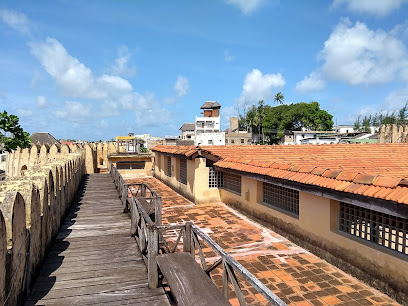
Lamu Museum
Explore the rich cultural heritage of Lamu at the Lamu Museum, where history and tradition come alive through captivating exhibits and local artistry.
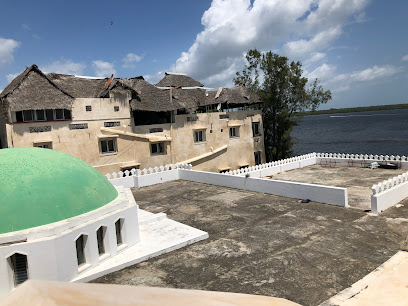
Masjid Riyadha & Islamic Centre
Experience the beauty and tranquility of Masjid Riyadha & Islamic Centre, a cultural gem in Lamu showcasing exquisite Islamic architecture and rich heritage.
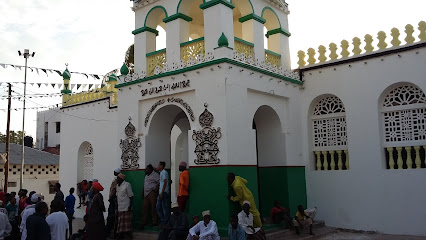
JamboHouse
Immerse yourself in the charm of Lamu at JamboHouse, where coastal beauty meets authentic Kenyan hospitality.

Lamu Town Square
Experience the vibrant culture of Lamu at Lamu Town Square, the historical heart of this enchanting Kenyan island.
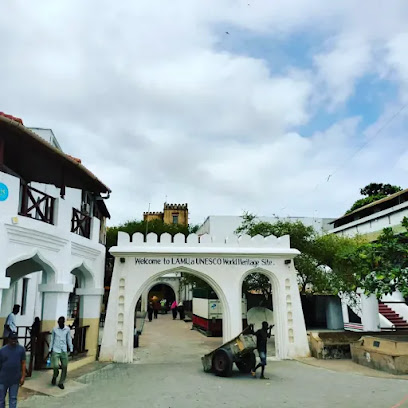
Amu House Lamu
Discover the serene beauty and rich culture of Lamu while staying at Amu House, your perfect bed & breakfast retreat on the island.
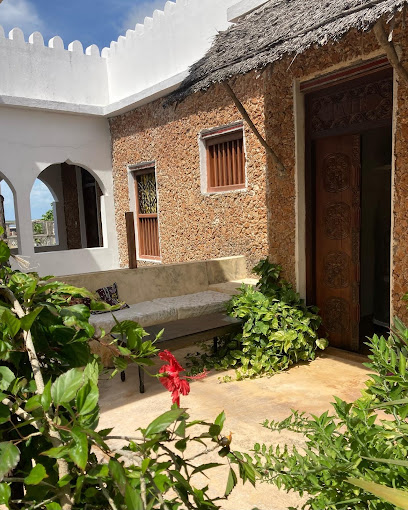
Bush Gardens
Experience the enchanting flavors of Lamu at Bush Gardens, where local cuisine meets serene landscapes in a charming dining atmosphere.
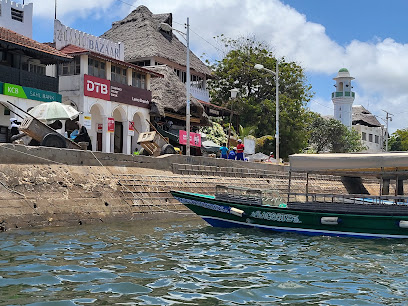
Baraka Gallery
Explore Baraka Gallery in Lamu for an unforgettable journey through West African art and culture, showcasing unique local talents and artistic expressions.
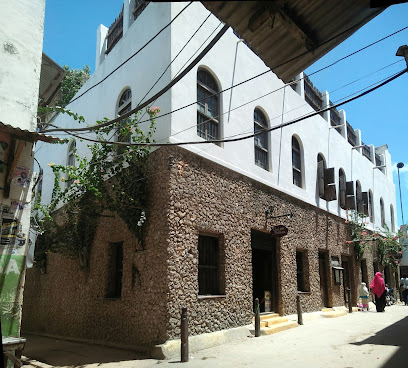
Lamu ,kenya
Experience the rich culture and breathtaking beauty of Lamu, Kenya – an island gem of the Indian Ocean steeped in history and adventure.
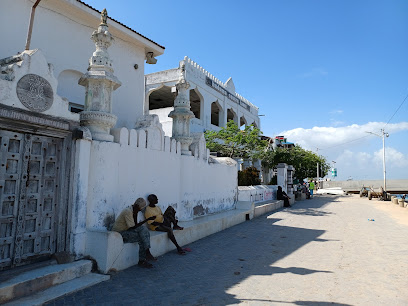
Kinoni historical place
Discover Kinoni in Lamu, a historical landmark that showcases the rich heritage and stunning architecture of this beautiful coastal town.
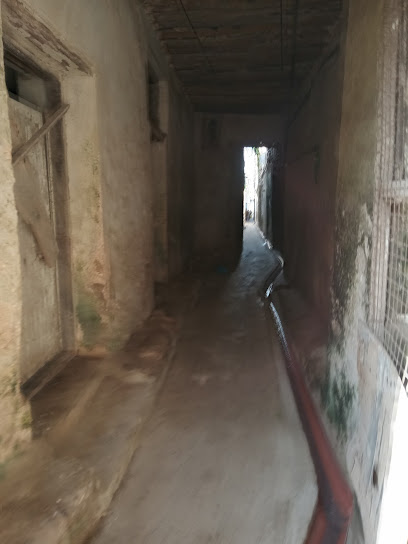
Unmissable attractions to see
Lamu Fort
Discover Lamu Fort, a historical gem on Lamu Island, where Swahili and Arab cultures converge in stunning architectural beauty.
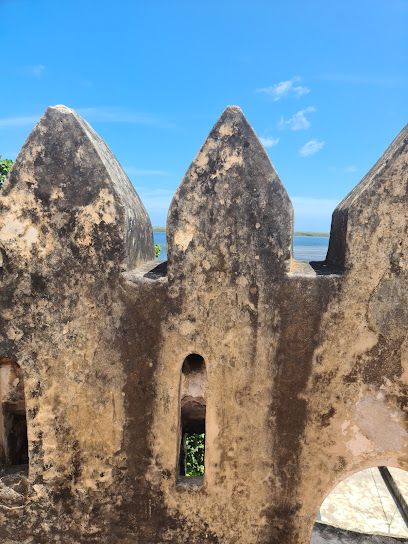
Lamu Museum
Explore the captivating history and culture of Lamu at the Lamu Museum, a gateway to the Swahili heritage of Kenya's coastal region.
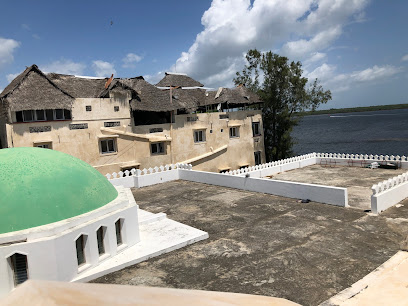
Masjid Riyadha & Islamic Centre
Explore the rich cultural heritage of Lamu at Masjid Riyadha & Islamic Centre, a serene mosque and UNESCO World Heritage site that embodies local traditions.
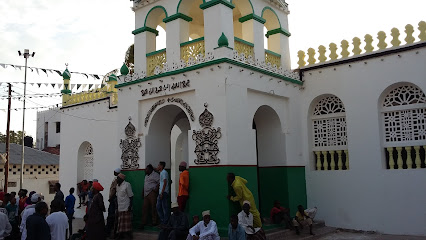
Lamu Town Square
Experience the vibrant culture and rich heritage of Lamu Island at Lamu Town Square, a hub of local art, cuisine, and history.
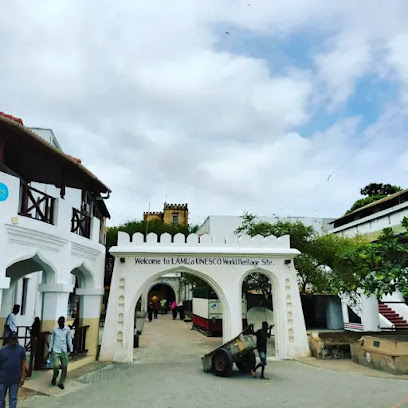
Shela dunes
Discover Shela Dunes: A breathtaking coastal attraction offering stunning views, adventure, and a serene escape into nature's beauty.
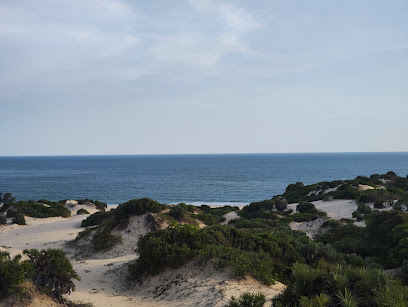
Mainland Crab Farm
Explore the Mainland Crab Farm in Mokowe, where sustainable aquaculture meets fresh seafood delights in a stunning coastal landscape.

Wiyoni Beach
Discover the pristine beauty of Wiyoni Beach, a tranquil coastal paradise in Kenya, perfect for relaxation, adventure, and breathtaking sunsets.
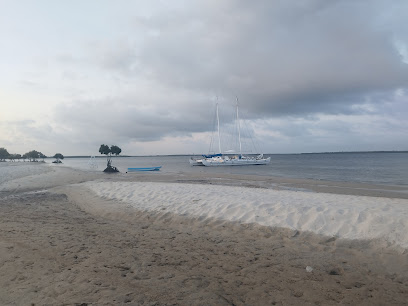
Takwa Beach 425
Experience tranquility at Takwa Beach, a serene escape in Lamu’s heart, where history, culture, and natural beauty converge for an unforgettable vacation.
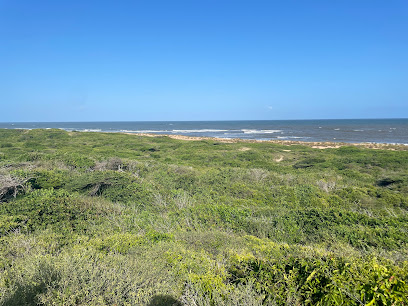
Ubunifu Lamu Community Art Center
Explore creativity and culture at Ubunifu Lamu Community Art Center in Shela, a vibrant hub for local art and community engagement.
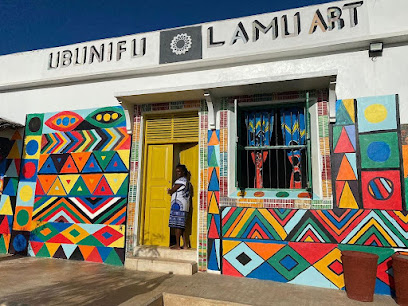
Mongo Sharif
Discover Lamu's vibrant culture and history at Mongo Sharif, a captivating tourist attraction showcasing stunning architecture and local hospitality.

Essential places to dine
Mangrove Restaurant
Experience authentic Swahili cuisine at Mangrove Restaurant in Lamu – where fresh seafood meets stunning views.
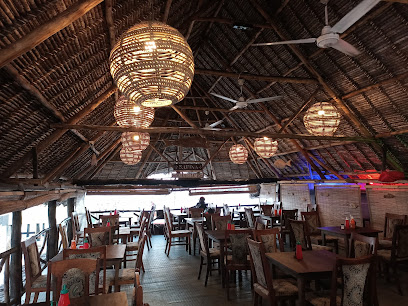
Seafront Cafe
Discover Seafront Cafe in Lamu: where delicious food meets stunning ocean views for an unforgettable dining experience.
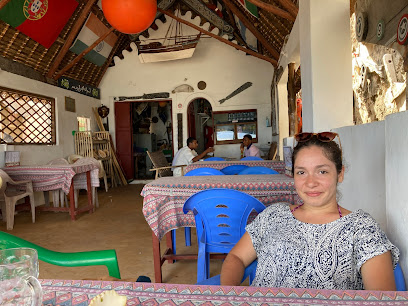
Labanda Restaurant
Experience authentic Kenyan coastal cuisine at Labanda Restaurant in Lamu – where fresh flavors meet local charm.
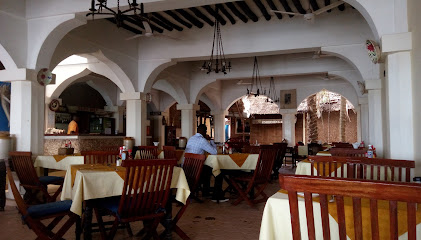
Whispers Cafe
Discover the flavors of Kenya at Whispers Cafe in Lamu - where culinary delights meet coastal charm.
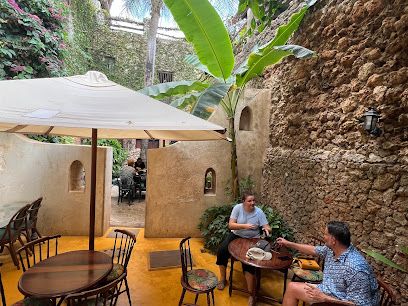
Sailors Joint
Discover Sailors Joint in Lamu: A culinary haven offering fresh seafood and local flavors with breathtaking ocean views.
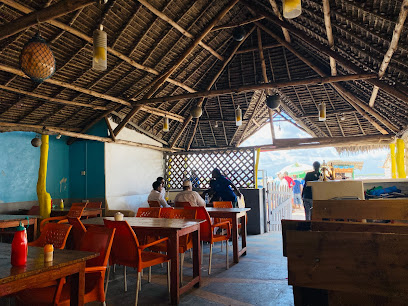
Bush Gardens
Experience the essence of Lamu at Bush Gardens - where local flavors meet serene surroundings in an unforgettable dining experience.
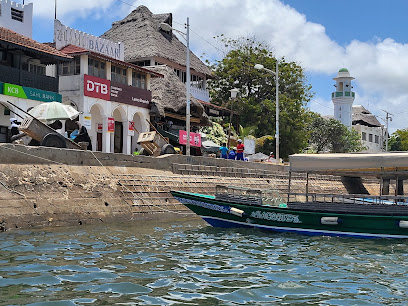
Coco Jambo Restaurant
Experience the vibrant flavors of Lamu at Coco Jambo Restaurant - where local tradition meets culinary excellence.
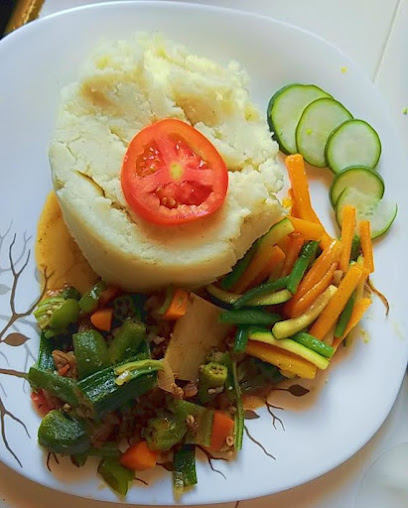
Lamu house Restaurant
Experience authentic Swahili cuisine at Lamu House Restaurant in the enchanting town of Lamu - where every meal tells a story.
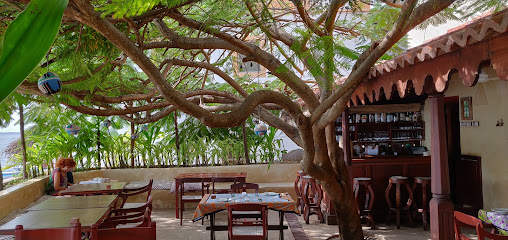
Moonrise restaurant
Experience exquisite local and international cuisine at Moonrise Restaurant in Lamu, where breathtaking views meet delightful flavors.
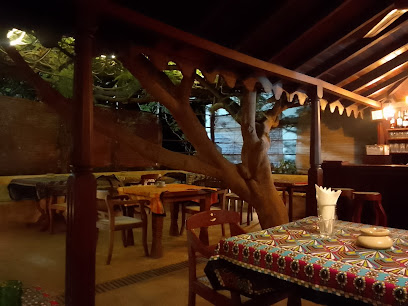
Island Dishes
Discover authentic Swahili cuisine at Island Dishes in Lamu – where every bite is steeped in tradition and flavor.

Markets, malls and hidden boutiques
Elizabeth's Tailoring Shop
Explore the artistry of bespoke tailoring at Elizabeth's Tailoring Shop in Lamu, where tradition meets modern fashion in a vibrant coastal setting.
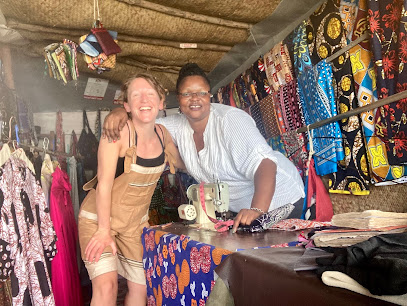
Aly King Boutique
Explore the vibrant fashion scene at Aly King Boutique, a clothing store in Lamu offering unique local designs and contemporary styles.
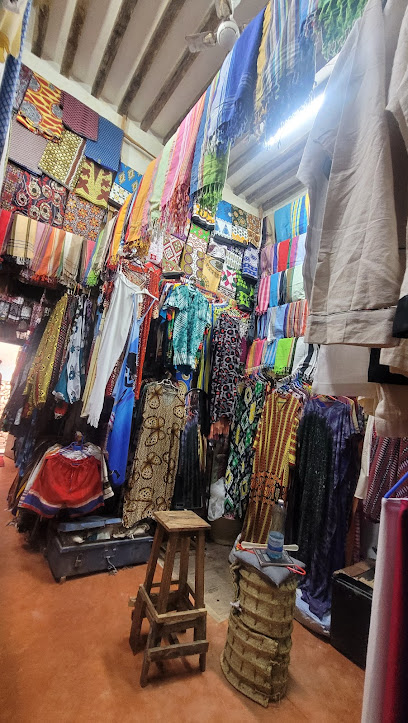
Sawwar Shop
Discover the charm of Lamu at Sawwar Shop, your go-to general store for local crafts, essentials, and a taste of island culture.

pinpop mitumba shop(next to governor kinyozi)
Explore an eclectic selection of second-hand clothing and accessories at Pinpop Mitumba Shop in Lamu, Kenya, a hidden gem for fashion lovers.
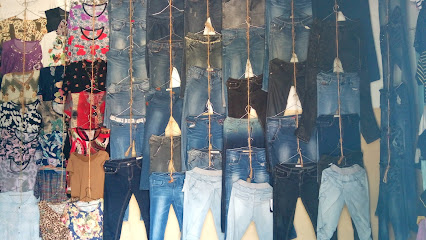
NasrudiN
Explore NasrudiN Store in Lamu for unique local crafts, authentic souvenirs, and an unforgettable shopping experience that reflects the rich culture of this coastal paradise.

Dotcom
Discover unique local crafts and souvenirs at Dotcom, your go-to store in Lamu for a taste of Kenyan culture.
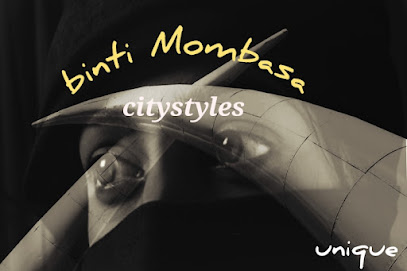
GOLD STORE
Explore Lamu's Gold Store: A treasure trove of unique clothing and accessories reflecting the rich culture and craftsmanship of the region.

St .Jack Designerz
Discover unique fashion at St. Jack Designerz in Lamu - where traditional craftsmanship meets contemporary style.

Kirukuu shop
Explore the unique offerings of Kirukuu Shop, a local treasure in Lamu showcasing handmade crafts and authentic souvenirs.

Sodawalla
Discover authentic Lamu crafts and gifts at Sodawalla, a cultural gem on Kenyatta Road, perfect for unique souvenirs and local experiences.
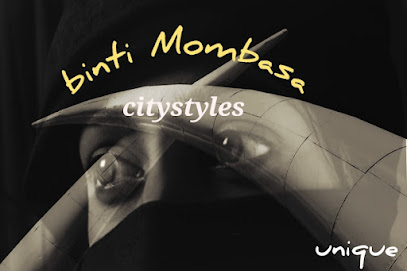
WATAMU
Explore the breathtaking beaches, vibrant marine life, and rich culture of Watamu, a coastal paradise in Kenya.

Essential bars & hidden hideouts
Floating Bar & Restaurant Lamu
Discover the enchanting Floating Bar & Restaurant Lamu, where exquisite food meets stunning ocean views for an unforgettable dining experience.
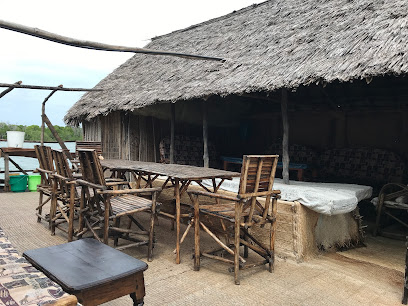
Seafront Cafe
Experience the beauty and flavors of Lamu at Seafront Cafe, where every meal is a celebration of the coast.
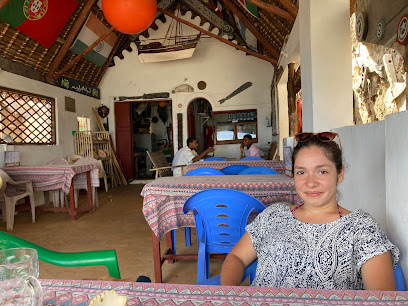
Labanda Restaurant
Discover the authentic taste of Lamu at Labanda Restaurant, where local flavors meet culinary creativity in a warm and inviting atmosphere.
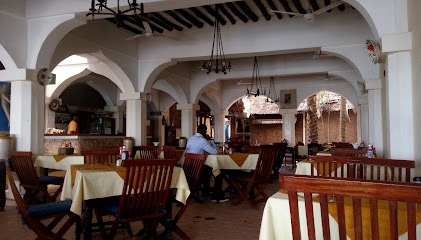
Whispers Cafe
Discover the serene charm of Whispers Cafe in Lamu, where local flavors and warm hospitality come together in a delightful dining experience.
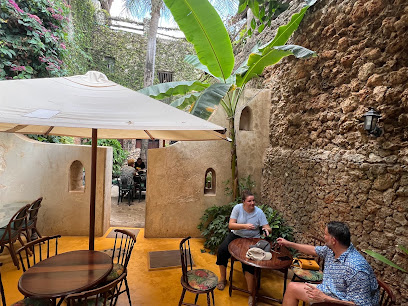
Sailors Joint
Discover Sailors Joint in Lamu, where exquisite local flavors meet breathtaking ocean views in a vibrant dining atmosphere.
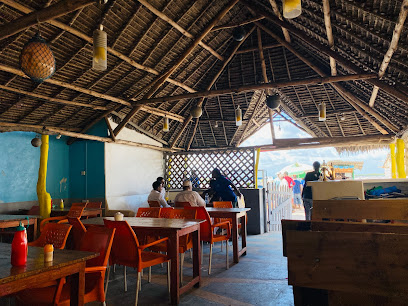
Bush Gardens
Discover the flavors of Lamu at Bush Gardens, where fresh ingredients meet a serene tropical atmosphere for an unforgettable dining experience.
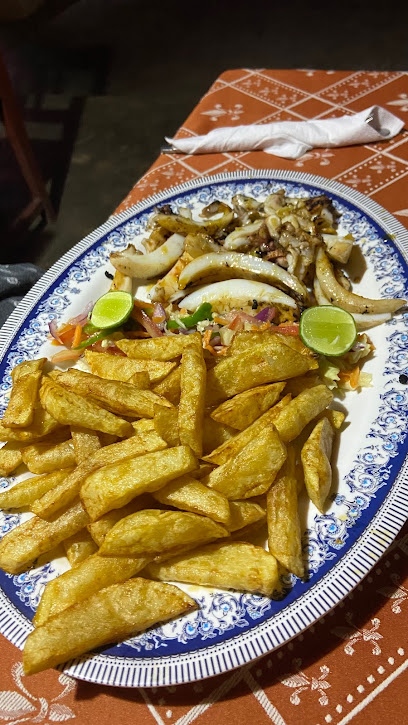
Coco Jambo Restaurant
Explore the rich flavors of Lamu at Coco Jambo Restaurant, where local cuisine meets warm hospitality in a vibrant setting.
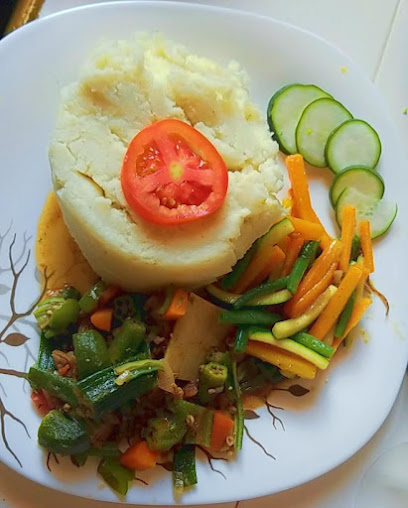
Lamu house Restaurant
Experience the taste of Lamu at Lamu House Restaurant, where local and international flavors blend in a warm and welcoming atmosphere.
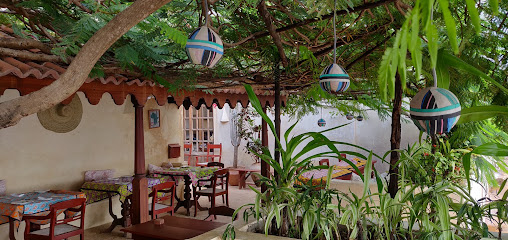
Hidden Gallery Cafe of Lamu
Experience a delightful blend of art and cuisine at the Hidden Gallery Cafe in Lamu, where every meal is a celebration of local culture.
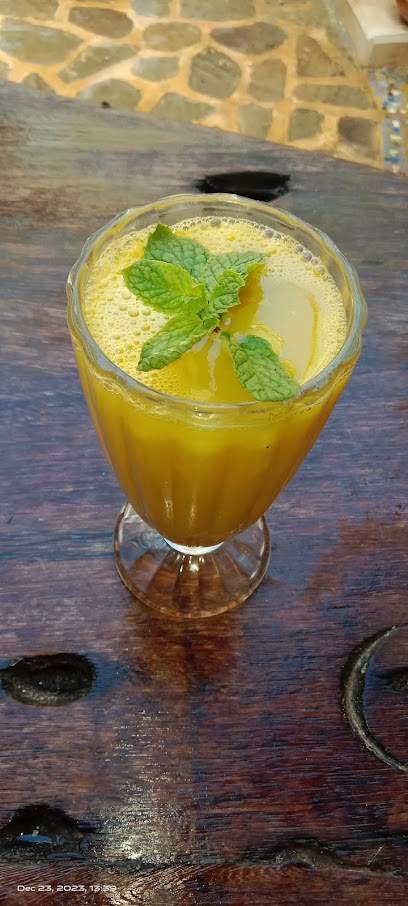
Hindi Inn paradise
Experience the vibrant flavors of Lamu at Hindi Inn Paradise, a premier grill restaurant offering a delightful selection of grilled dishes in a warm atmosphere.
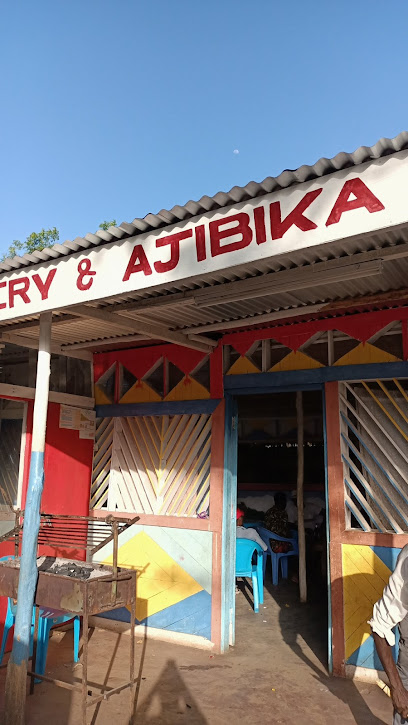
Local Phrases
-
- HelloShikamo
[shee-kah-moh] - GoodbyeKwaheri
[kwah-heh-ree] - YesNdio
[nn-dee-oh] - NoHapana
[ha-pah-nah] - Please/You're welcomeTafadhali
[ta-fah-dha-lee] - Thank youAsante
[ah-san-teh] - Excuse me/SorrySamahani
[sah-mah-hah-nee] - How are you?U hali gani?
[oo hah-lee gah-nee] - Fine. And you?Salama. Na wewe?
[sah-lah-mah. nah weh-weh] - Do you speak English?Unasema Kiingereza?
[oo-nah-seh-mah keen-geh-reh-zah] - I don't understandSieelewi
[see-eh-leh-wee]
- HelloShikamo
-
- I'd like to see the menu, pleaseNapenda kuitazama menyu, tafadhali
[nah-pen-dah kwee-tah-zah-mah meh-nyoo, tah-fah-dha-lee] - I don't eat meatSi kula nyama
[see koo-lah nyah-mah] - Cheers!Afya!
[ah-fyah] - I would like to pay, pleaseNapenda kulipa, tafadhali
[nah-pen-dah koo-lee-pah, tah-fah-dha-lee]
- I'd like to see the menu, pleaseNapenda kuitazama menyu, tafadhali
-
- Help!Msaada!
[msah-ah-dah] - Go away!Nenda zako!
[nen-dah zah-koh] - Call the Police!Piga polisi!
[pee-gah poh-lee-see] - Call a doctor!Piga daktari!
[pee-gah dahk-tah-ree] - I'm lostNimepotea
[nee-meh-poh-teh-ah] - I'm illNinaumwa
[nee-nah-oom-wah]
- Help!Msaada!
-
- I'd like to buy...Napenda kununua...
[nah-pen-dah koo-noo-noo-ah] - I'm just lookingNatafuta tu
[nah-tah-foo-tah too] - How much is it?Bei ni ngapi?
[bay nee ngah-pee] - That's too expensiveHii ni ghali sana
[hee nee gah-lee sah-nah] - Can you lower the price?Unaweza kupunguza bei?
[oo-nah-weh-zah koo-poon-goo-zah bay]
- I'd like to buy...Napenda kununua...
-
- What time is it?Saa ngapi?
[sah ngah-pee] - It's one o'clockSaa moja
[sah moh-jah] - Half past (10)Nusu ya kumi
[noo-soo yah koo-mee] - MorningAsubuhi
[ah-soo-boo-hee] - AfternoonMchana
[m-chah-nah] - EveningJioni
[joh-nee] - YesterdayJana
[jah-nah] - TodayLeo
[leh-oh] - TomorrowKesho
[keh-shoh] - 1Moja
[moh-jah] - 2Mbili
[m-bee-lee] - 3Tatu
[tah-too] - 4Nne
[n-neh] - 5Tano
[tah-noh] - 6Sita
[see-tah] - 7Saba
[sah-bah] - 8Nane
[nah-neh] - 9Tisa
[tee-sah] - 10Kumi
[koo-mee]
- What time is it?Saa ngapi?
-
- Where's a/the...?Iko wapi...?
[ee-koh wah-pee] - What's the address?Ni anwani gani?
[nee ahn-wah-nee gah-nee] - Can you show me (on the map)?Unaweza kunionyesha (kwenye ramani)?
[oo-nah-weh-zah koo-nee-oh-nyeh-shah kweh-neh rah-mah-nee] - When's the next (bus)?Basi la pili ni saa ngapi?
[bah-see lah pee-lee nee sah ngah-pee] - A ticket (to ....)Tiketi (kwenda ....)
[tee-keh-tee kwen-dah]
- Where's a/the...?Iko wapi...?
History of Lamu Town
-
Lamu Town is believed to have been founded in the 14th century, making it one of the oldest settlements along the East African coast. Its strategic position on the Indian Ocean made it an essential stop for trade routes connecting the Arabian Peninsula, Persia, and the Indian subcontinent. The town's architecture and culture reflect the influences of these early trade connections, evident in the Swahili style of its buildings.
-
By the 15th century, Lamu had become a prominent center of Swahili culture, characterized by a unique blend of African, Arab, and Persian influences. The town's inhabitants engaged in trade, agriculture, and fishing, leading to an affluent society. The establishment of Islam in the region further shaped the cultural landscape, with the construction of mosques and the introduction of Islamic practices.
-
In the late 15th century, Portuguese explorers arrived in Lamu, seeking to control the lucrative trade in spices and gold. This incursion led to conflicts with local rulers. By the 17th century, the Omanis began to assert their dominance over the region, eventually establishing control over Lamu and promoting the growth of trade in slaves, ivory, and textiles, which solidified Lamu's status as a trading hub.
-
In the late 19th century, the British established their protectorate over the East African coast. Lamu, like other coastal towns, experienced changes in governance and trade practices. The British influence brought new infrastructure, including the construction of roads and the establishment of a postal service. However, traditional Swahili culture continued to thrive, with Lamu maintaining its identity amidst colonial changes.
-
Following Kenya's independence in 1963, Lamu faced challenges related to modernization and economic shifts. However, the town's rich heritage garnered attention, leading to efforts for preservation. In 2001, Lamu was designated a UNESCO World Heritage Site, recognizing its historical significance and unique architecture, including intricately carved doors and narrow streets, which attract visitors and foster cultural tourism.
Lamu Town Essentials
-
Lamu Town is accessible via air and sea. The nearest airport is Lamu Airport (LAU), which has flights from Nairobi and other major cities. From Lamu Airport, you can take a taxi or a boat to Lamu Town, which is approximately 15 minutes away by boat. Alternatively, you can reach Lamu Town by taking a bus or a shared taxi from Mombasa to Mokowe, followed by a boat ride to Lamu Island.
-
Lamu Town is primarily pedestrian-friendly, as vehicles are not allowed within the town's narrow streets. You can explore the town on foot, or hire a dhow (traditional wooden boat) for trips along the coast or to nearby islands. For longer distances, consider renting a bicycle or hiring a local guide on a donkey, which is a common mode of transport in the area.
-
Lamu Town is generally safe for tourists, but standard travel precautions should be followed. Avoid walking alone at night in quiet areas and keep your belongings secure. While the majority of the town is safe, be cautious in less frequented places, especially after dark. Petty crimes, such as pickpocketing, can occur, so stay vigilant in crowded areas.
-
In case of an emergency, contact local authorities by dialing 999 for police, or go to the nearest hospital. Lamu has a few healthcare facilities, but for serious medical emergencies, evacuation to Mombasa may be necessary. It is highly advisable to have travel insurance that covers medical emergencies and ensure you carry a basic first-aid kit.
-
Fashion: Do dress modestly, especially in religious sites; women should wear long skirts or dresses, and men should avoid shorts. Religion: Do respect local customs; always remove shoes before entering mosques. Public Transport: Do be polite and greet drivers; don't engage in loud conversations. Greetings: Do greet with 'Jambo' or 'Sijambo' and a handshake; don't take too long to engage in conversation. Eating & Drinking: Do try local dishes like Swahili biryani; don't eat in public during Ramadan if it is observed.
-
To experience Lamu Town like a local, visit the bustling Lamu Market early in the morning for fresh produce and spices. Engage with local artisans and consider taking a Swahili cooking class to learn about the cuisine. Don't miss the chance to explore the hidden alleys and discover local crafts. Attend cultural festivals, such as the Lamu Cultural Festival, to immerse yourself in the local traditions and music.
-
The local currency is the Kenyan Shilling (KES). While some establishments accept credit cards, cash is preferred, especially in markets and smaller shops. ATMs are available but may have limited hours. It's advisable to carry enough cash for daily expenses, including food and transport.
-
Understanding local customs is vital for a respectful experience. Do use your right hand for giving and receiving items, as the left hand is considered unclean. Be mindful of personal space, and avoid public displays of affection. When invited to a local home, it is polite to bring a small gift such as fruits or sweets.
Nearby Cities to Lamu Town
-
Things To Do in Malindi
-
Things To Do in Mombasa
-
Things To Do in Diani Beach
-
Things To Do in Tanga
-
Things To Do in Moshi
-
Things To Do in Nairobi
-
Things To Do in Zanzibar City
-
Things To Do in Stone Town
-
Things To Do in Arusha
-
Things To Do in Naivasha
-
Things To Do in Dar es Salaam
-
Things To Do in Nakuru
-
Things To Do in Morogoro
-
Things To Do in Mogadishu
-
Things To Do in Eldoret












